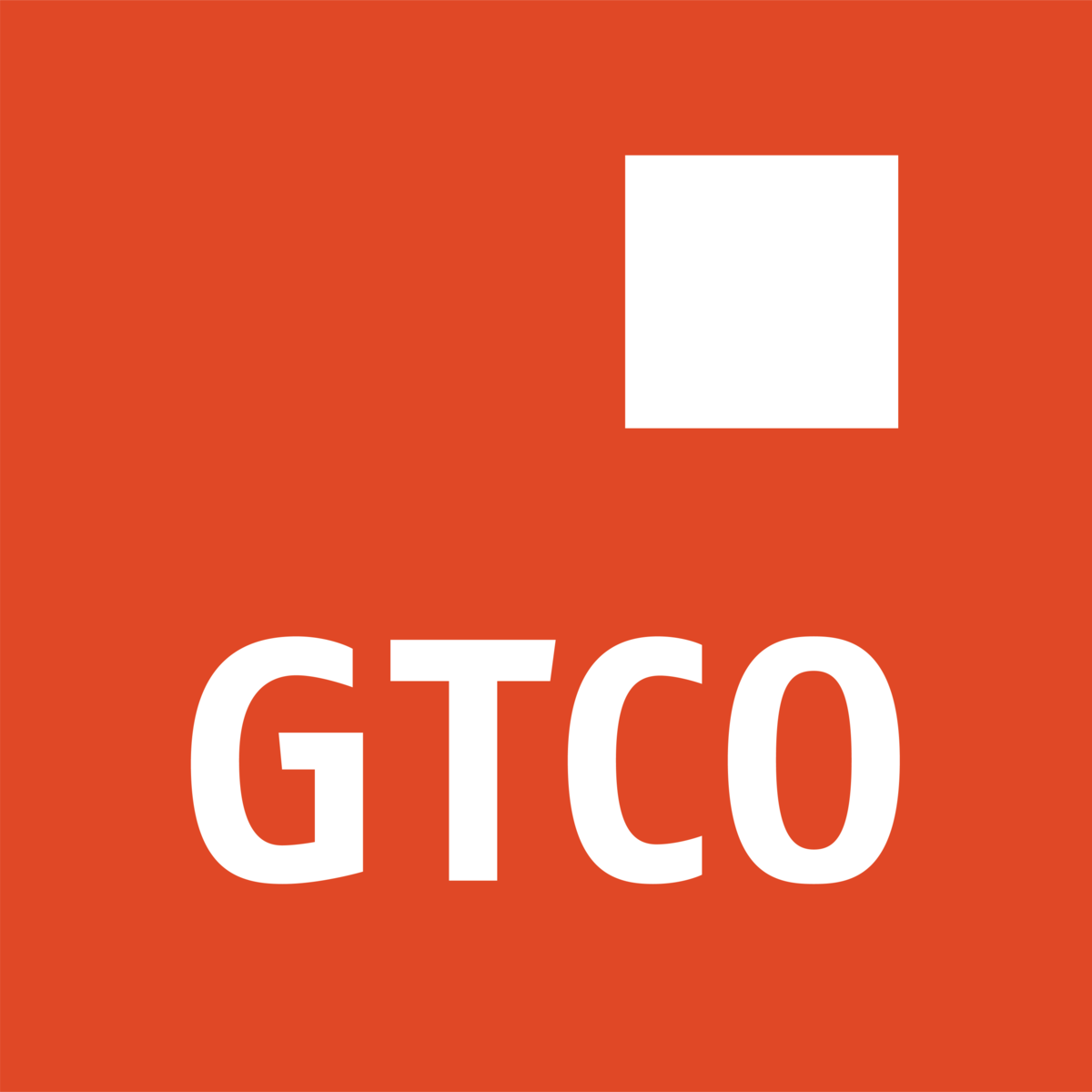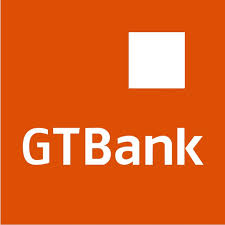brand
THE EVOLUTION OF NIGERIAN BANK OVER THE LAST FEW YEARS,A SERIES OF REFORMS HAVE REVITALISED THE BAKING INDUSTRY IN NIGERIA.JIM OVIA, CHAIRMAN OF ZENITH BANK


EXPLAINS HOW HIS ORGANIZATION IS CONTRIBUTINGTO ECONOMIC PROGRESS
NIGERIAS MODERNISED ECONOMY
For more than 10 years now, Nigeria economy has benefited greatly from sustained levels of growth
with annual real GDP rising to 6.3 percent in 2014 , and it is expected to continue on this positive trajectory into 2015 and beyond. Overall , the Nigerian economy is becoming more modern, resembling western developed economies, with the services industry providing the bulk of its economic output. It is responsible for more than 50 percent of total economic growth, while manufacturing and agriculture contributed around nine and 21 percent respectively, according to data complied by African economic outlook, the country has managed to diversify its economy away from oil-which is no simple feat. Other industry sectors-including the service industry-have grown to become the main drivers of growth in the country. Its population of around 178 million (see side bar) means that the retail consumer market is enormous and crammed with stirring opportunities. In Africa, the country is at the forefront of utilizing electronic banking products, with its huge telecommunications backbone, world-class banking applications and burgeoning biometric projects.
The past year has been good for Nigeria so far, but its growth has suffered, slowing slightly as consequence of reduced economic recovery in other parts of the world, and the price of oil is yet to bounce back from its current lows. Cheap oil has made a considerable dent in fiscal revenues, but due to the success of economic diversification, the country has managed to weather the storm rather effectively and helped mitigate the impact of the commodity’s low price. In order to combat the dip in revenue, the government has chosen to cut spending so that it doesn’t take on excessive levels of debt. It has also embarked on a strategy that involves shoring up non-oil revenues in a bid to compensate for declining oil revenues.
Boosting business
In a recent report by the world bank, which attempts to measure how effectively government regulation has assisted business activity in various countries, the international organization ranked Nigerians overall performance favourably, increasing its rank from 175 out of 189 to 170. The positive ranking by the world bank was due to the Nigerian government making it easier for individuals to do two things: set up a business and receive credit from financial institutions. Overall, the government has worked hard to increase the efficiency of its business environment and legal institutions in an effort to improve the performance of its economy.
The all progressives congress (APC) has continued to ease restraints on businesses, focusing on long-term judicial reforms that aim to bolster legal entities for contract enforcement.it is also eager to address issues like corruption and national security, both of which dramatically impact investor confidence and have the capablility of reducing foreign direct investment into the country. But these issues are not serious enough to dissuade all investors.
I don’t find it surprising that investors want to take part in Nigeria’s economy when you consider the exciting potential of our economy, our very high population which means we have very substantial consumer markets and our excellent infrastructures that make investment easy and ensure a good flow of information to investors themselves; said Peter Amangbo, CEO of Zenith Bank.
At zenith bank, helping domestic and foreign investors is one our strongest areas of activity. We think our devotion to customer service, our passionate enthusiasm for making sure that the service we offer are exactly what customers want and our ability to bring new services and new facilities to customers make us the bank of choice for investors both within Nigeria and beyond our borders who want to maximize their knowledge of the investment potential of Nigeria and also maximize their returns; In order to make credit more readily available for those looking to start a business, the government has had to implement a number of financial reforms. These have helped alter the financial reforms. These have helped financial environment, creating a stronger banking institutions that possess an efficient payments system. It has also helped to greatly improve the financial infrastructure of the country too.
The enormous success of e-banking in Nigeria, and the fact that it is not only seen in African.
But globally as a successful economy, is partly explained by the Central Bank Nigeria (CBN) encouraging cashless transactions in other to engender flexibility, speed and accountability. E-banking in Nigeria is also partly explained by the hurtling transformation of the economy which is increasing demands for banking services in general, and e-banking in particular.
Yet there is another key factor too: the success of e-banking in Africa’s most populous nation is also due to the sheer energy Nigeria’s most influential and far-sighted bankers, who ultimately know that the people who must want e-banking and all its associated advantages of banking services from their desktops, laptops, tablets and mobile phones, are the customers.
This makes banking easier with no need to find time to visit a physical branch, and its makes banking available on the move. A lot has changed for Nigeria’s banking industry over the years, and so World Finance spoke to Jim Ovia, Founder and Chairman of Zenith Bank, to discuss Nigeria’s economic history, and how the bank has diversified with the country’s changing economy.
From the humble beginnings
Ovia came into the industry to make a difference. He begun his career banking in Nigeria as an operator, redefining the way banking was done. He brought forward innovations in management, service delivery, customer service and the deployment of technology in banking operations.
With its head office based in Nigeria and franchises in major financial centres around the world, Zenith Bank provides an assortment of services and products in areas that include corporate and investment banking, commercial and consumer banking, personal banking, private banking and trade services.
It has over 500 branches and offices, spread across all states of the federation and the Federal Capital Territory (FCT), Abuja. Coupled with a presence in London, Ghana, Sierra Leone, The Gambia and representative offices in South Africa, Dubai and Beijing. Zenith Bank leverages its robust ICT infrastructure to provide secure and fast electronic channels and solutions to meet the dynamic needs of customers.
The extremely low turnover rate of the bank’s highest administration allows for consistency, continuity, focus and authorship. CEO Amangbo, along with the other executive directors, have been influential propelling Zenith Bank to its current market leading position. Working with Jim Ovia has put Amangbo in good stead to continue delivering the bank’s growth trajectory, of which he has been a prominent contributor.
What values have helped Zenith Bank achieve its success to date?
Zenith Bank is simply built on three core values: people, technology and service. These values have been the backbone of Zenith from inception to date. The bank thrives by putting the right people in the right places. The staff receive the best training available, which has helped build a strong corporate culture of goal oriented activities. Our people are empowered to be creative, innovative and at the same time, execute the highest level of efficiency. All these have contributed to a stable and highly motivated work force in Zenith. As a result of the training and exposure we give to our staff, we have been able to innovate, create and lead the banking revolution in Nigeria through the power of cutting-edge technology. Our practice in Zenith is to continually seek ways of improving existing banking practices, using top global bank as our yardstick.
The combination of highly motivated staff and state-of-the-art technology has led to excellent customer service, which has been our distinction within the Nigerian banking industry.
Our ability to meet and exceed the expectations of our customers over the years has made Zenith attractive to major businesses home and abroad.
How do you think the new administration can sustain economic growth?
As a bank that believe in putting the right people in the right place, Zenith has attracted and retained seasoned professionals in the area of risk management, compliance and legal services
This has helped it to build a reputation of compliance conscious bank, which has made it easier for us to work with government at all tiers and the several regulatory agencies in Nigeria and other countries. With such an international foot-print, we have and will continue to support the programmes and policies of the government in jurisdictions we operate.
As a reward to our conscious efforts on compliance with laws and regulations-and the support of government programmes-we have received significant support from the government of Nigeria, and beyond. We will continue to work cordially for more support.
After the government consolidation, larger Nigerian banks have been able to compete comfortably with other banks in the world. As players in the banking industry, we expect the new administration to continue to support the growth of Nigerian banks, as this helps to create jobs, wealth and expansion into other countries.
What is your strategy for expansion?
Zenith is continually seeking opportunities to expand and tap into profitable business ventures at home and abroad. It has a UK subsidiary, and this year opened a branch in Dubai. Despite the global economic growth downturn, there are numerous untapped business opportunities, especially in Africa and Asia, which the bank is watching closely.
How do you plan to integrate payment systems into the Zenith’s model?
As a technology driven bank, Zenith have been in the forefront of processing automation, and championed several projects that resulted to adoption of electronic banking. Zenith has deployed several platforms that have made banking services seamless and more efficient for customers. Using technology to facilitate payment has always been an integral part of Zenith’s banking model, and with the CBN’s drive for a cashless Nigeria, Zenith will continue to work with other stakeholders for a more efficient and secured payment system. The CBN has tightened monetary policy in 2015 by imposing forex restrictions on certain imports.
How have new environment conditions affected Zenith’s business, and what is need to stabilize the market? The Nigerian economy is overly import-dependent, and this today has led to a significant loss of foreign exchange. Therefore, the position of foreign exchange restrictions on certain imports would in fact not only help in foreign exchange management by saving the country a forex haemorrhage, but it would also help to promote the local industries with its attendant spill-over effect on creating jobs and increasing wealth.
The current monetary condition is a fallout of dwindling oil prices and drop in government receipts. The implication is that the CBN is not able to meet all the forex needs of every customer. However, Zenith is coping very well with the current situation by forex rationing to meet the needs of its customers, while ensuring compliance with relevant laws and regulations.
The banking system is a key piece of Nigeria’s future, but SMEs have difficulty finding capital.
How has access to financial services throughout the Nigerian economy changed?
Access to finance is no doubt challenging but improving, especially for SMEs because of high interest rates due to high cost of sourcing deposits.
However, that circumstance is gradually changing since the introduction of various intervention schemes, particularly the Micro Small and Medium Enterprise Development Fund (MSMEDF) with single digit interest rate by the CBN. It is expected that funding for SMEs will be more accessible than it used to be.
Technology features greatly at Zenith Bank. How has this being implemented?
Technology is integral to the bank’s business strategy. We deploy cutting-edge technology platforms to enable seamless transaction for our customers.

brand
GTCO Plc Releases 2024 Full Year Audited Results …Pays Shareholders Record Dividend of N8.03k for 2024 Financial Year

 Guaranty Trust Holding Company Plc (“GTCO” or the “Group”) has released its Audited Consolidated and Separate Financial Statements for the year ended December 31, 2024, to the Nigerian Exchange Group (NGX) and London Stock Exchange (LSE). The Group reported profit before tax of 1.266trilion, representing an increase of 107.8% over₦ 609.3billion recorded in the corresponding year ended December 2023₦ . This performance reflects not just strong earnings but also the quality and sustainability of our earnings, underpinned by a well-diversified revenue base, robust risk management practice, and disciplined capital management. The Group recorded growth across all financial and non-financial metrics, and continues to maintain a well-structured, healthy, and diversified balance sheet. The Group’s loan book (net) increased by 12.3% from 2.48trillion in December 2023 to 2.79trillion in December 2024, while deposit liabilities grew by₦ ₦ 37.8% from 7.55trillion to 10.40trillion during the same period. Total assets and shareholders’ funds₦ ₦ closed at 14.8trillion and 2.7trillion, respectively. Capital Adequacy Ratio (CAR) remained very robust₦ ₦ and strong, closing at 39.3%, likewise, asset quality was sustained as evidenced by IFRS 9 Stage 3 Loans which closed at 3.5% at Bank Level and 5.2% at Group in December 2024 (2023: Bank, 2.5%; Group, 4.2%) and cost of risk (COR) closed at 4.9% from 4.5% in December 2023. Commenting on the results, the Group Chief Executive Officer of Guaranty Trust Holding Company Plc (GTCO Plc), Mr. Segun Agbaje, said; “Our strong performance for 2024 underscores the resilience and depth of our business, driven by a well-diversified earnings base across our banking and non-banking subsidiaries, all of which are P&L positive. Our capacity to generate sustainable high-quality earnings, maintain strong asset quality, and drive cost efficiencies reflects the soundness of our long-term strategy and disciplined execution. We have also prudently provided for all our forbearance loans, well ahead of the June 2025 timeline, whilst fully accruing for the windfall tax, further strengthening our balance sheet and enhancing financial resilience.He further added; “The total dividend of N8.03k for the 2024 FYE is underpinned by the quality of our earnings and is in line with our long tradition of increasing dividend pay-out year-on year. Looking ahead, we remain committed to building a Financial Services Group that thrives on innovation, operational efficiency, and sustainable profitability. We will continue to deepen our relationships with customers, leverage technology to deliver cutting-edge financial solutions, and accelerate the growth of all our business verticals—Banking, Funds Management, Pension, and Payments—to unlock new opportunities and create more value for our shareholders.”Overall, the Group continues to post one of the best metrics in the Nigerian Financial Services industry in terms of key financial ratios i.e., Pre-Tax Return on Equity (ROAE) of 60.5%, Pre-Tax Return on Assets (ROAA) of 10.3%, Capital Adequacy Ratio (CAR) of 39.3% and Cost to Income ratio of 24.1%.Guaranty Trust Holding Company Plc (GTCO Plc) is a leading financial services group with operations across Africa and the United Kingdom. Renowned for its strong corporate governance, innovative financial solutions, and customer-centric approach, GTCO Plc provides a wide range of banki .5%, Pre-Tax Return on Assets (ROAA) of 10.3%, Capital Adequacy Ratio (CAR) of 39.3% and Cost to Income ratio of 24.1%.Guaranty Trust Holding Company Plc (GTCO Plc) is a leading financial services group with operations across Africa and the United Kingdom. Renowned for its strong corporate governance, innovative financial solutions, and customer-centric approach, GTCO Plc provides a wide range of banking and
Guaranty Trust Holding Company Plc (“GTCO” or the “Group”) has released its Audited Consolidated and Separate Financial Statements for the year ended December 31, 2024, to the Nigerian Exchange Group (NGX) and London Stock Exchange (LSE). The Group reported profit before tax of 1.266trilion, representing an increase of 107.8% over₦ 609.3billion recorded in the corresponding year ended December 2023₦ . This performance reflects not just strong earnings but also the quality and sustainability of our earnings, underpinned by a well-diversified revenue base, robust risk management practice, and disciplined capital management. The Group recorded growth across all financial and non-financial metrics, and continues to maintain a well-structured, healthy, and diversified balance sheet. The Group’s loan book (net) increased by 12.3% from 2.48trillion in December 2023 to 2.79trillion in December 2024, while deposit liabilities grew by₦ ₦ 37.8% from 7.55trillion to 10.40trillion during the same period. Total assets and shareholders’ funds₦ ₦ closed at 14.8trillion and 2.7trillion, respectively. Capital Adequacy Ratio (CAR) remained very robust₦ ₦ and strong, closing at 39.3%, likewise, asset quality was sustained as evidenced by IFRS 9 Stage 3 Loans which closed at 3.5% at Bank Level and 5.2% at Group in December 2024 (2023: Bank, 2.5%; Group, 4.2%) and cost of risk (COR) closed at 4.9% from 4.5% in December 2023. Commenting on the results, the Group Chief Executive Officer of Guaranty Trust Holding Company Plc (GTCO Plc), Mr. Segun Agbaje, said; “Our strong performance for 2024 underscores the resilience and depth of our business, driven by a well-diversified earnings base across our banking and non-banking subsidiaries, all of which are P&L positive. Our capacity to generate sustainable high-quality earnings, maintain strong asset quality, and drive cost efficiencies reflects the soundness of our long-term strategy and disciplined execution. We have also prudently provided for all our forbearance loans, well ahead of the June 2025 timeline, whilst fully accruing for the windfall tax, further strengthening our balance sheet and enhancing financial resilience.He further added; “The total dividend of N8.03k for the 2024 FYE is underpinned by the quality of our earnings and is in line with our long tradition of increasing dividend pay-out year-on year. Looking ahead, we remain committed to building a Financial Services Group that thrives on innovation, operational efficiency, and sustainable profitability. We will continue to deepen our relationships with customers, leverage technology to deliver cutting-edge financial solutions, and accelerate the growth of all our business verticals—Banking, Funds Management, Pension, and Payments—to unlock new opportunities and create more value for our shareholders.”Overall, the Group continues to post one of the best metrics in the Nigerian Financial Services industry in terms of key financial ratios i.e., Pre-Tax Return on Equity (ROAE) of 60.5%, Pre-Tax Return on Assets (ROAA) of 10.3%, Capital Adequacy Ratio (CAR) of 39.3% and Cost to Income ratio of 24.1%.Guaranty Trust Holding Company Plc (GTCO Plc) is a leading financial services group with operations across Africa and the United Kingdom. Renowned for its strong corporate governance, innovative financial solutions, and customer-centric approach, GTCO Plc provides a wide range of banki .5%, Pre-Tax Return on Assets (ROAA) of 10.3%, Capital Adequacy Ratio (CAR) of 39.3% and Cost to Income ratio of 24.1%.Guaranty Trust Holding Company Plc (GTCO Plc) is a leading financial services group with operations across Africa and the United Kingdom. Renowned for its strong corporate governance, innovative financial solutions, and customer-centric approach, GTCO Plc provides a wide range of banking and
non-banking services, including payments, funds management, and pension fund administration. The Group is committed to delivering long-term value to stakeholders while driving growth and development across its markets.Corporate Communications
brand
ZENITHz BANK MAINTAINS SUPERLATIVE PERFORMANCE WITH PBT OF N1.3 TRILLION IN FULL YEAR 2024

 Zenith Bank Plc has announced its audited financial results for the year ended December 31, 2024, delivering significant growth across key performance indicators. The Bank’s impressive performance reflects effective management and pricing of its risk assets, as well as an optimized treasury portfolio, reinforcing its position as a leader in Nigeria’s banking industry.According to the audited financial results for the 2024 financial year presented to the Nigerian Exchange (NGX), the Bank recorded a double-digit year-on-year (YoY) growth of 86% in gross earnings, increasing from N2.13 trillion in 2023 to N3.97 trillion in 2024. This growth was driven by a 138% increase in interest income, supported by investment in high-yield government securities, and growth in the Bank’s loan book.Commenting on the results, Dame Dr Adaora Umeoji OON, Group Managing Director/CEO, stated “This year’s performance underscores our unwavering commitment to innovation and customer-centric solutions. We will also remain focused on deepening financial inclusion, enhancing service delivery, and creating value for our customers and stakeholders.Zenith Bank’s profit before tax (PBT) rose by 67%, reaching N1.3 trillion in 2024 from N796 billion in 2023, driven by a combination of top-line expansion and efficient treasury portfolio management. Net interest income increased by 135% from N736 billion in 2023 to N1.7 trillion, reinforcing the Bank’s strong core banking performance and ability to grow earnings despite macroeconomic headwinds. Non-interest income also grew by 20% from N919 billion to N1.1 trillion. The Bank’s total assets grew by 47% from N20 trillion in 2023 to N30 trillion in 2024, underpinned by a strong liquidity position and effective balance sheet management. Customer deposits surged by 45% from N15 trillion to N22 trillion in 2024, reflecting a historically strong corporate deposits portfolio and a sustained increase in retail deposits. The increase in retail deposits was driven by customer acquisition and the Bank’s strategic focus on low-cost funding.Return on Average Equity (ROAE) declined to 32.5% on the back of the injection of new capital, while Return on Average Assets (ROAA) remained unchanged at 4.1%. The Bank’s cost-to-income increased slightly from 36.1% to 38.9%, despite inflationary pressures. Its Non-Performing Loan (NPL) ratio stood at 4.7%, with a coverage ratio of 223%, underscoring the Bank’s prudent risk management and commitment to maintaining a resilient loan book, ensuring stability and confidence in the Bank’s operations.Given the good earnings performance, the Bank has proposed a final dividend of N4.00 per share, which brings the total dividend for the year to N5.00 per ordinary share. In a significant milestone, Zenith Bank successfully raised N350 billion in capital through a rights issue and public offer, with a subscription rate of 160%, demonstrating strong investor confidence in the Bank’s growth trajectory. The proceeds from this capital raise will be strategically deployed to enhance technology infrastructure, strengthen liquidity, and support the Bank’s expansion into key African markets, unlocking new growth opportunities. The bank remains focused on delivering sustainable growth, enhancing shareholder value, and driving financial inclusion through innovative banking solutions. With its solid capital base and innovative product offerings, the Bank is well-positioned to navigate evolving market conditions while continuing to strengthen its leadership in the Nigerian financial landscape.Zenith Bank’s track record of excellent performance has continued to earn the brand numerous awards including being recognised as the Number One Bank in Nigeria by Tier-1 Capital for the fifteenth consecutive year in the 2024 Top 1000 World Banks Ranking, published by The Banker Magazine. The Bank was also awarded the Bank of the Year (Nigeria) in The Banker’s Bank of the Year Awards for 2020, 2022 and 2024; and Best Bank in Nigeria for four times in five years, from 2020 to 2022 and in 2024, in the Global Finance World’s Best Banks Awards.Further recognitions include Best Commercial Bank, Nigeria for four consecutive years from 2021 to 2024 in the World Finance Banking Awards and Most Sustainable Bank, Nigeria in the International Banker 2023 and 2024 Banking Awards. Additionally, Zenith Bank has been acknowledged as the Best Corporate Governance Bank, Nigeria, in the World Finance Corporate Governance Awards for 2022, 2023 and 2024 and ‘Best in Corporate Governance’ Financial Services’ Africa for four consecutive years from 2020 to 2023 by the Ethical Boardroom. The Bank’s commitment to excellence saw it being named the Most Valuable Banking Brand in Nigeria in the Banker Magazine Top 500 Banking Brands for 2020 and 2021, Bank of the Year 2023 and 2024 at the BusinessDay Banks and Other Financial Institutions (BAFI) Awards, and Retail Bank of the Year for three consecutive years from 2020 to 2022 and in 2024 at the BAFI Awards. The Bank also received the accolades of Best Commercial Bank, Nigeria and Best Innovation in Retail Banking, Nigeria, in the International Banker 2022 Banking Awards. Zenith Bank was also named Most Responsible Organisation in Africa, Best Company in Transparency and Reporting and Best Company in Gender Equality and Women Empowerment at the SERAS CSR Awards Africa 2024; Bank of the Year 2024 by ThisDay Newspaper; Bank of the Year 2024 by New Telegraph Newspaper; and Best in MSME Trade Finance, 2023 by Nairametric
Zenith Bank Plc has announced its audited financial results for the year ended December 31, 2024, delivering significant growth across key performance indicators. The Bank’s impressive performance reflects effective management and pricing of its risk assets, as well as an optimized treasury portfolio, reinforcing its position as a leader in Nigeria’s banking industry.According to the audited financial results for the 2024 financial year presented to the Nigerian Exchange (NGX), the Bank recorded a double-digit year-on-year (YoY) growth of 86% in gross earnings, increasing from N2.13 trillion in 2023 to N3.97 trillion in 2024. This growth was driven by a 138% increase in interest income, supported by investment in high-yield government securities, and growth in the Bank’s loan book.Commenting on the results, Dame Dr Adaora Umeoji OON, Group Managing Director/CEO, stated “This year’s performance underscores our unwavering commitment to innovation and customer-centric solutions. We will also remain focused on deepening financial inclusion, enhancing service delivery, and creating value for our customers and stakeholders.Zenith Bank’s profit before tax (PBT) rose by 67%, reaching N1.3 trillion in 2024 from N796 billion in 2023, driven by a combination of top-line expansion and efficient treasury portfolio management. Net interest income increased by 135% from N736 billion in 2023 to N1.7 trillion, reinforcing the Bank’s strong core banking performance and ability to grow earnings despite macroeconomic headwinds. Non-interest income also grew by 20% from N919 billion to N1.1 trillion. The Bank’s total assets grew by 47% from N20 trillion in 2023 to N30 trillion in 2024, underpinned by a strong liquidity position and effective balance sheet management. Customer deposits surged by 45% from N15 trillion to N22 trillion in 2024, reflecting a historically strong corporate deposits portfolio and a sustained increase in retail deposits. The increase in retail deposits was driven by customer acquisition and the Bank’s strategic focus on low-cost funding.Return on Average Equity (ROAE) declined to 32.5% on the back of the injection of new capital, while Return on Average Assets (ROAA) remained unchanged at 4.1%. The Bank’s cost-to-income increased slightly from 36.1% to 38.9%, despite inflationary pressures. Its Non-Performing Loan (NPL) ratio stood at 4.7%, with a coverage ratio of 223%, underscoring the Bank’s prudent risk management and commitment to maintaining a resilient loan book, ensuring stability and confidence in the Bank’s operations.Given the good earnings performance, the Bank has proposed a final dividend of N4.00 per share, which brings the total dividend for the year to N5.00 per ordinary share. In a significant milestone, Zenith Bank successfully raised N350 billion in capital through a rights issue and public offer, with a subscription rate of 160%, demonstrating strong investor confidence in the Bank’s growth trajectory. The proceeds from this capital raise will be strategically deployed to enhance technology infrastructure, strengthen liquidity, and support the Bank’s expansion into key African markets, unlocking new growth opportunities. The bank remains focused on delivering sustainable growth, enhancing shareholder value, and driving financial inclusion through innovative banking solutions. With its solid capital base and innovative product offerings, the Bank is well-positioned to navigate evolving market conditions while continuing to strengthen its leadership in the Nigerian financial landscape.Zenith Bank’s track record of excellent performance has continued to earn the brand numerous awards including being recognised as the Number One Bank in Nigeria by Tier-1 Capital for the fifteenth consecutive year in the 2024 Top 1000 World Banks Ranking, published by The Banker Magazine. The Bank was also awarded the Bank of the Year (Nigeria) in The Banker’s Bank of the Year Awards for 2020, 2022 and 2024; and Best Bank in Nigeria for four times in five years, from 2020 to 2022 and in 2024, in the Global Finance World’s Best Banks Awards.Further recognitions include Best Commercial Bank, Nigeria for four consecutive years from 2021 to 2024 in the World Finance Banking Awards and Most Sustainable Bank, Nigeria in the International Banker 2023 and 2024 Banking Awards. Additionally, Zenith Bank has been acknowledged as the Best Corporate Governance Bank, Nigeria, in the World Finance Corporate Governance Awards for 2022, 2023 and 2024 and ‘Best in Corporate Governance’ Financial Services’ Africa for four consecutive years from 2020 to 2023 by the Ethical Boardroom. The Bank’s commitment to excellence saw it being named the Most Valuable Banking Brand in Nigeria in the Banker Magazine Top 500 Banking Brands for 2020 and 2021, Bank of the Year 2023 and 2024 at the BusinessDay Banks and Other Financial Institutions (BAFI) Awards, and Retail Bank of the Year for three consecutive years from 2020 to 2022 and in 2024 at the BAFI Awards. The Bank also received the accolades of Best Commercial Bank, Nigeria and Best Innovation in Retail Banking, Nigeria, in the International Banker 2022 Banking Awards. Zenith Bank was also named Most Responsible Organisation in Africa, Best Company in Transparency and Reporting and Best Company in Gender Equality and Women Empowerment at the SERAS CSR Awards Africa 2024; Bank of the Year 2024 by ThisDay Newspaper; Bank of the Year 2024 by New Telegraph Newspaper; and Best in MSME Trade Finance, 2023 by Nairametric
brand
Fidelity Bank Equips Entrepreneurs for Global Trade Success with EMP 18


L-R: Prof Frank Ojadi, Director, Export Management Program, Lagos Business School; Stella Nwuke, Team Member, Export & Agriculture Division, Fidelity Bank Plc; Emem Bassy, Managing Partner, Peony Dynamic Resource Limited; and Emmanuel Nwalor, Team Lead, Export & Agriculture Division, Fidelity Bank Plc; at the closing ceremony of the 18th edition of the Fidelity Bank Export Management Programme (EMP 18) held at the Lagos Business School recently.
Tier-one lender, Fidelity Bank Plc, has once again highlighted the importance of promoting non-oil exports as it recently hosted the 18th edition of its dedicated capacity development training tagged Export Management Programme (EMP 18). The programme, which was held recently in Lagos provided a platform for entrepreneurs interested in exploring global trade opportunities to scale and acquire relevant expertise.
Hosted in partnership with the Lagos Business School (LBS), the 5-day intensive program focused on equipping entrepreneurs with the skills and knowledge needed to explore international market opportunities and strengthen their capacity to thrive in the export sector.
“At Fidelity Bank, our strategy to enhance non-oil exports is guided by the significant opportunities it offers to our customers and the national economy. This is why we offer a comprehensive suite of financial, advisory, and market-access solutions for businesses aiming to engage in international trade.
“Our market-access initiative, EMP, launched in 2016, has trained over 1,600 entrepreneurs. Today, we completed the 18th cohort with high-caliber participants and a 150% oversubscription. This indicates a promising future for Nigeria’s non-oil exports,” explained Isaiah Ndukwe, Divisional Head of Export and Agriculture at Fidelity Bank Plc.
Facilitated by key industry experts in the exports space, EMP 18 took participants through several sessions focused on critical areas in global trade such as Export Finance Instruments, Export Documentation, Accessibility of Export Markets, amongst others.
A key feature of the training was a facility tour of one of Nigeria’s busiest Export Processing Terminals (EPT) located in Ikorodu, Lagos state. The full-day visit, which was anchored by officials of the Nigerian Customs Service (NCS), gave participants a first-hand feel of the necessary procedure and requirements for securing regulatory approval for exporting from Nigeria.
One of the program participants, Patrick Ulayi Awu-Patricks, Managing Director/Chief Executive Officer, Alliance & Frontier Limited, commended Fidelity Bank for its leadership in deploying capacity-building initiatives in the non-oil exports sector. In a discussion with journalists, he stated that EMP 18 provided invaluable exposure to the opportunities in the export business noting that, “There are lots of non-oil exports opportunities and entrepreneurs must be able to identify and capitalize on these to be able to play effectively in the international trade space. This course has given me insights into the power of data which is essential for strategic decision-making.”
Ranked among the best banks in Nigeria, Fidelity Bank Plc is a full-fledged Commercial Deposit Money Bank serving over 8.5 million customers through digital banking channels, its 255 business offices in Nigeria and United Kingdom subsidiary, FidBank UK Limited.
The Bank is the recipient of multiple local and international Awards, including the Export Finance Bank of the Year at the 2023 BusinessDay Awards; the Banks and Other Financial Institutions (BAFI) Awards; Best Payment Solution Provider Nigeria 2023; and Best SME Bank Nigeria 2022 by the Global Banking and Finance Awards. It was also recognized as the Best Bank for SMEs in Nigeria by the Euromoney Awards for Excellence 2023 and the Best Domestic Private Bank in Nigeria by the Euromoney Global Private Banking Awards 2023.
-

 news4 years ago
news4 years agoUPDATE: #ENDSARS: CCTV footage of Lekki shootings intact – Says Sanwo – Olu
-

 news6 days ago
news6 days agoUpdate : Fubara ordered bombing of Rivers Assembly, I am not under duress I resigned, Says ex-Rivers HoS Nwaeke
-

 news1 year ago
news1 year agoEnvironmental Pollutions : OGONI COMMUNITY CRIES OUT, THREATENS TO SHUT DOWN FIRSTBANK,SHELL OIL COMPANY OPERATIONS FOR NOT PAYING COURT AWARD
-

 news2 days ago
news2 days agoBreaking : TInubu appoints Bashir Ojulari as new CEO group of NNPC and GMD mele kyari get sacked, Says Onanuga
-

 interview3 days ago
interview3 days agoNIGERIA MECHANIZED AGRO EXTENSION SERVICE PROJECT, A STRATEGIC MOVE TO ALLEVIATE POVERTY – DR. AMINU ABDULKADIR
-

 news4 days ago
news4 days agoTinubu commended Nandap for her leadership, extends Comptroller-General tenure till 2026, says Onanuga
-

 brand7 days ago
brand7 days agoGTCO Plc Releases 2024 Full Year Audited Results …Pays Shareholders Record Dividend of N8.03k for 2024 Financial Year
-

 brand1 week ago
brand1 week agoZENITHz BANK MAINTAINS SUPERLATIVE PERFORMANCE WITH PBT OF N1.3 TRILLION IN FULL YEAR 2024


